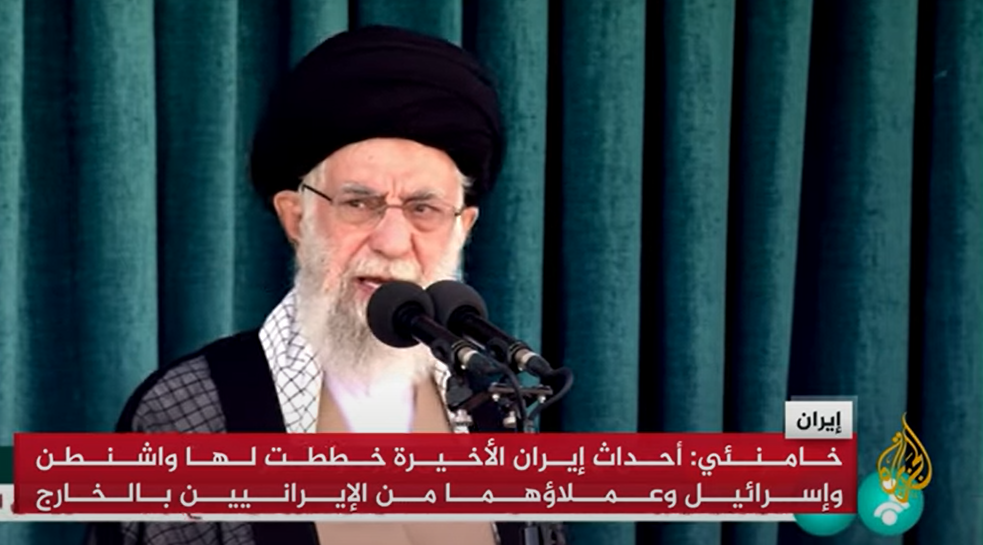In a recent New Year’s speech, Supreme Leader Ali Khamenei emphasized Iran’s economic challenges, acknowledging its vulnerability in this realm.
Consequently, Iran seeks to avoid exacerbating its economic woes by steering clear of direct confrontation, especially with the United States, opting instead for a calculated approach aimed at lifting Western sanctions.
Iran’s strategic posture involves nurturing its influence across the Middle East through proxies in Lebanon, Syria, Iraq, Yemen, and the Gaza Strip.
However, it currently aims for controlled tension with the West to facilitate sanctions relief.
This calculated approach, characterized as “strategic patience” by Khamenei, coexists with Iran’s clandestine efforts to bolster its nuclear capabilities.
Efforts to de-escalate tensions in southern Lebanon underscore Iran’s commitment to avoiding conflict that could jeopardize its economic interests.
Notably, General Ismail Kaani’s recent visit to Beirut’s Al-Dahiya neighborhood, carrying a message from Khamenei to Hezbollah’s Hassan Nasrallah, underscores Iran’s cautionary stance.
Nasrallah’s acquiescence signals his recognition of Iran’s priorities.
Iran’s nuclear ambitions continue unabated despite international scrutiny.
Having stockpiled enriched uranium sufficient for multiple warheads, Iran now focuses on acquiring components for nuclear warhead assembly, flouting its commitments under the Non-Proliferation Treaty.
Its capacity to swiftly enrich uranium to military-grade levels poses a significant proliferation risk.
While Khamenei has refrained from formalizing a decision to pursue nuclear armament, the Revolutionary Guards are laying logistical groundwork for rapid weaponization if such a directive materializes.
Despite official denials citing a religious decree prohibiting weapons of mass destruction, Iran’s actions speak volumes, including the covert construction of a fortified uranium enrichment facility in Natanz.
Israel, recognizing the existential threat posed by Iran’s nuclear ambitions, contemplates preemptive action.
However, the efficacy of such measures remains uncertain, with estimates of Israel’s operational window ranging from a year and a half to two years.
The urgency of this threat underscores the need for concerted regional and international efforts to address Iran’s nuclear ambitions.
In light of these developments, Israel must remain vigilant and adapt its strategies to counter the evolving Iranian threat.
The recent conflict in the Gaza Strip further underscores the imperative for Israel to confront this challenge decisively, recognizing that Iranian advancements may outpace current intelligence assessments.




